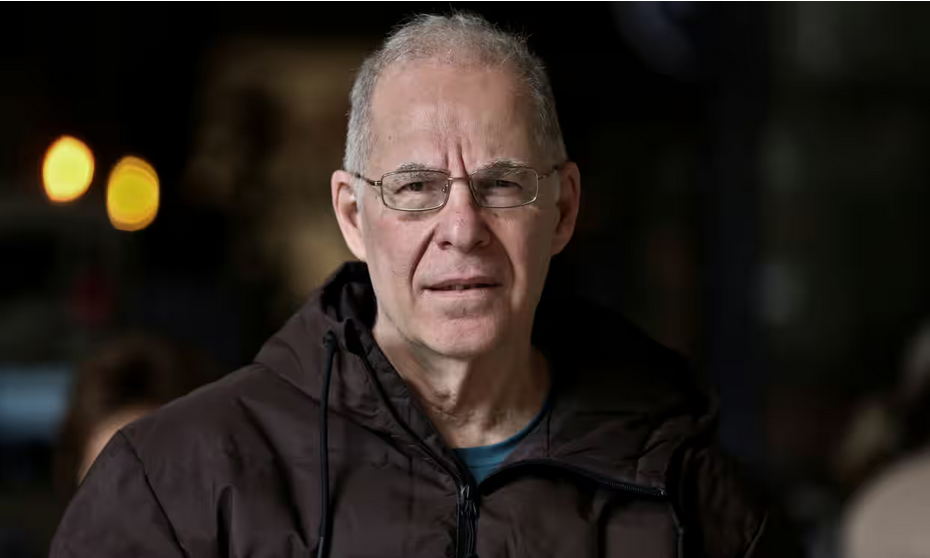Israeli critic Meir Baruchin reinstated
On 15 January 2024, the Tel Aviv District Labor Court reversed the dismissal of Meir Baruchin.
Baruchin, a teacher with 30 years’ experience in Israeli secondary schools lost his job and was was detained in solitary confinement in November 2023 for posting critical comments about the IDF and Israel occupation on social media. (See excerpt from a Guardian article below)

The judge ruled that the Petah Tikva municipality did not supply a justifiable cause for dismissal, adding that the Hamas attack and the war in Gaza do not change ‘the boundaries of teachers’ freedom of speech’.
The court also ordered the Education Ministry to wipe the allegations from the teacher’s record so he will be free to work at high schools around the country.
The court ruled that posts voicing opposition to the “occupation” — Israel’s military control in the West Bank — do not amount to supporting terror.
An Haaretz’s editorial stated at the time of Baruchin’s arrest: “Make no mistake: Baruchin was used as a political tool to send a political message. The motive for his arrest was deterrence – silencing any criticism or any hint of protest against Israeli policy,”
A defeat for the Israeli state, at a time when a new wave of protest by Israeli and Arab is ‘demanding a ceasefire agreement, the release of the hostages and the end of the killing in Gaza’
(Source Haaretz and The Times of Israel, 15 January 2024)
‘It is a time of witch hunts in Israel’: teacher held in solitary confinement for posting concern about Gaza deaths
Meir Baruchin, who was fired and jailed for criticising the military, says that many who agree with him are afraid to go public
Emma Graham-Harrison and Quique Kierszenbaum in Jerusalem Sat 13 Jan 2024 THE GUARDIAN
An unlikely charge of intent to commit treason landed Meir Baruchin, a grey-haired, softly spoken history and civics teacher, in the solitary confinement wing of Jerusalem’s notorious “Russian Compound” prison in early November.
The evidence compiled by police who handcuffed him, then drove to his apartment and ransacked it as he watched, was a series of Facebook posts he’d made, mourning the civilians killed in Gaza, criticising the Israeli military, and warning against wars of revenge.
“Horrific images are pouring in from Gaza. Entire families were wiped out. I don’t usually upload pictures like this, but look what we do in revenge,” said a message on 8 October, below a picture of the Abu Daqqa family, killed in one of the first airstrikes on Gaza. “Anyone who thinks this is justified because of what happened yesterday, should unfriend themselves. I ask everyone else to do everything possible to stop this madness. Stop it now. Not later, Now!!!”
It was the day after Hamas’s horrific attack on Israel, when the country was reeling from the slaughter of 1,200 people and the kidnapping of more than 240.
He knew his views about the Israeli military were controversial; similar criticism at a less volatile time had cost him a teaching post in the city of Rishon LeZion, near Tel Aviv, three years earlier. He also thought expressing them was vitally important as the country decided how to respond.
I became a ‘Hamas supporter’, because I expressed my opposition to targeting innocent civilians
“Most Israelis don’t know much about Palestinians. They think they are terrorists, all of them, or vague images with no names, no faces, no family, no homes, no hopes,” Baruchin said. “What I am trying to do in my posts is present Palestinians as human beings.”
Ten days after that Facebook message, he was fired from his teaching job in Petach Tikvah municipality. Less than a month later he was in a high-security jail, detained to give police more time to investigate critical views he had never tried to hide.
Inside Israel, veteran journalists, intellectuals and rights activists say, there is little public space for dissent about the war in Gaza, even three months into an offensive that has killed 23,000 Palestinians and has no end in sight. “Make no mistake: Baruchin was used as a political tool to send a political message. The motive for his arrest was deterrence – silencing any criticism or any hint of protest against Israeli policy,” the long-established Haaretz newspaper said in an editorial.
READ FULL ARTICLE
